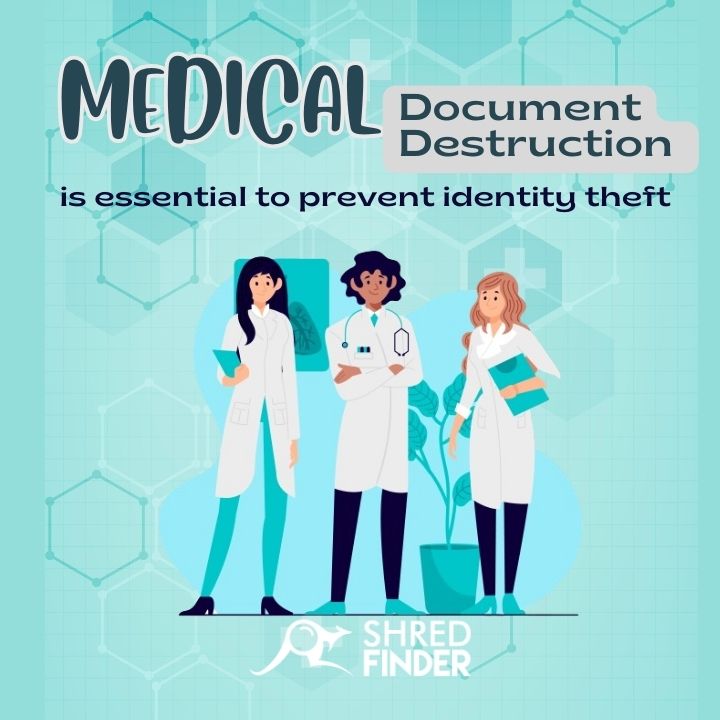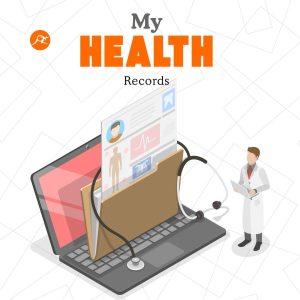The Importance of Medical Document Destruction
In an age where information is key, safeguarding personal data has become a paramount concern. Identity theft is a pervasive threat, and one area that demands particular attention is the disposal of medical documents. Medical document destruction is a critical aspect of protecting individuals from falling victim to identity theft. In this blog post, we’ll explore the significance of secure document disposal in the healthcare sector and the potential consequences of neglecting this essential practice.
The Vulnerability of Medical Records:
Medical records contain a treasure trove of sensitive information, ranging from names and addresses to Social Security numbers and detailed health histories. This wealth of personal data makes individuals vulnerable to identity theft if not handled and disposed of securely. Unauthorized access to medical records can lead to fraudulent activities, such as opening lines of credit, obtaining prescription medications, or even receiving medical treatment under someone else’s identity.
Legal Implications:
Healthcare providers are entrusted with the responsibility of maintaining the confidentiality of patient information. Failure to uphold this responsibility not only jeopardizes patient trust but can also result in severe legal consequences. Health organizations are subject to various regulations, such as the Health Insurance Portability and Accountability Act (HIPAA) in the United States, which mandate the secure handling and destruction of patient information.
Identity Theft Consequences:
The consequences of identity theft can be devastating for individuals. Stolen identities can be used to commit financial fraud, access healthcare services fraudulently, and even engage in criminal activities. Victims may face significant financial losses, damage to their credit history, and the arduous task of reclaiming their identity.
Importance of Secure Medical Document Destruction:
Protecting Patient Privacy: Secure destruction ensures that patient information is kept confidential and out of the wrong hands. This not only protects individuals but also upholds the trust that patients place in their healthcare providers.
Compliance with Regulations: Adhering to data protection regulations, such as HIPAA, is not only a legal requirement but also an ethical obligation. Healthcare organizations must implement secure document destruction practices to comply with these regulations and avoid penalties.
Preventing Identity Theft: Proper disposal methods, such as shredding or secure digital destruction, significantly reduce the risk of identity theft. Destroying medical records makes it challenging for criminals to piece together enough information to steal an individual’s identity.
Maintaining Reputation: A healthcare provider’s reputation is closely tied to its ability to protect patient information. A breach of confidentiality can lead to a loss of trust among patients, damaging the institution’s standing in the community.
Medical document destruction is a crucial step in preventing identity theft and ensuring the security of sensitive patient information. Healthcare organizations must prioritize the implementation of secure disposal practices to uphold legal obligations, protect patient privacy, and maintain the trust of the communities they serve. By recognizing the importance of proper document destruction, we can collectively contribute to a safer and more secure healthcare environment for everyone.





